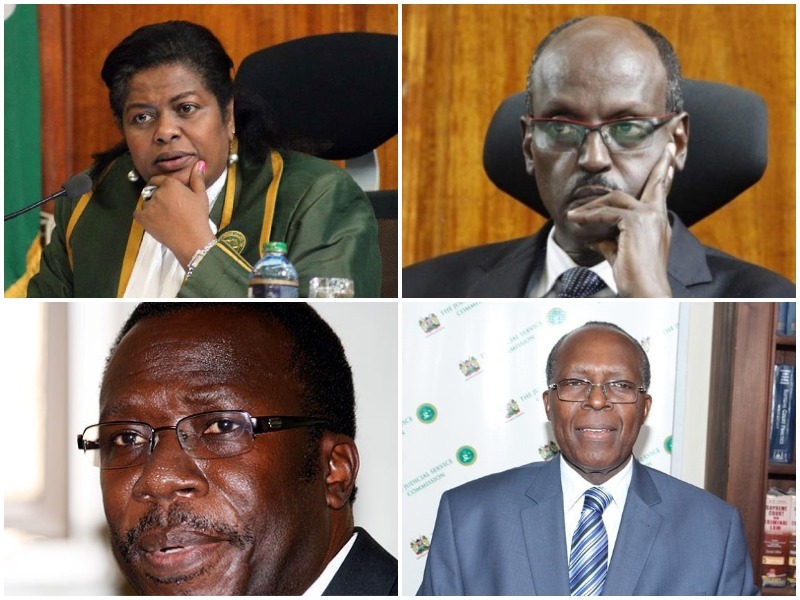The toughest part about being a Supreme Court judge is that whichever way you rule, there will always be a disgruntled party.
On Wednesday, The Judicial service Comission (JSC) confirmed that it has already received a petition seeking the removal of Supreme Court judges Njoki Ndung’u, Mohammed Ibrahim, Jackton Ojwang and Smokin Wanjala over alleged gross misconduct.
City lawyer AhmedNassir Abdullahi, the petitioner, accuses the four judges of receiving a bribe to uphold the election of Wajir Governor Mohammed Abdi.
“The petition was considered and the commission directed that the same be served upon the named judges. They were given 14 days to respond to the issues raised therein,” a statement sent to newsrooms by JSC reads.
Mr Abdullahi, a firebrand lawyer is known to call it how he sees it and was in February 2018 caught in a heated exchange with Chief Justice David Maraga over comments he posted on social media.
The Twitter thread was highly critical of Supreme Court decisions.
[Read: Kenyan journalists rebuke religious leaders over issuing threats to media]
Kenya’s apex court was also on the receiving end of opposition politicians after it upheld the election of President Uhuru Kenyatta in the 2013 presidential election.
Five years later, it was the turn of the Jubilee ruling party to twist the knife on the apex court when it nullified Uhuru’s win in the August 8, 2017 election. A statement “We shall revisit” became synonymous with the aggrieved Jubilee party.
Deputy Chief Justice Philomena Mwilu is also facing the heat as she claims political motivators are behind the instigation of prosecution proceedings in which she is accused of allegedly using her position of influence for financial benefit.
Former Supreme Court judge Philip Tunoi was also forced to resign after he was accused of receiving a Ksh200 million bribe to uphold the election of former Nairobi Governor Evans Kidero in the 2013 Nairobi County gubernatorial election after his closest challenger current Kiambu Governor Ferdinand Waititu seeked legal redress in protest of the results declared by the Independent Electoral and Boundaries Comission (IEBC).
In August 2012, a tribunal formed to investigate former Deputy Chief Justice Nancy Baraza found her guilty of gross misconduct after she was caught on video intimidating a guard at upmarket business hub Village Market went viral.
[See also: Hidden bombs in picking Boinett successor]
Given how plum the position of a Deputy Chief Justice is, calls to have her ousted could have to some extent been amplified by vested interests of individuals looking to replace her.













2 Comments